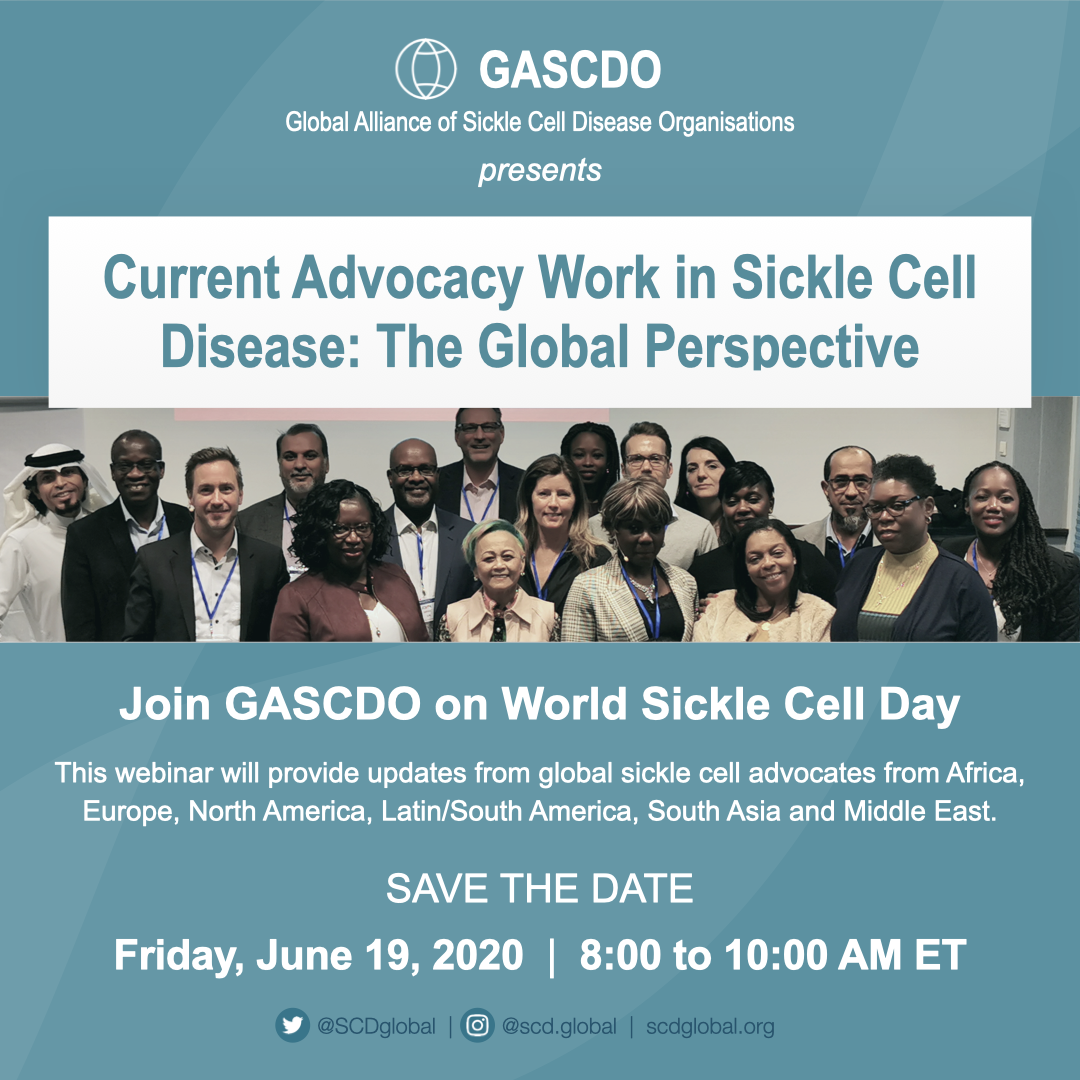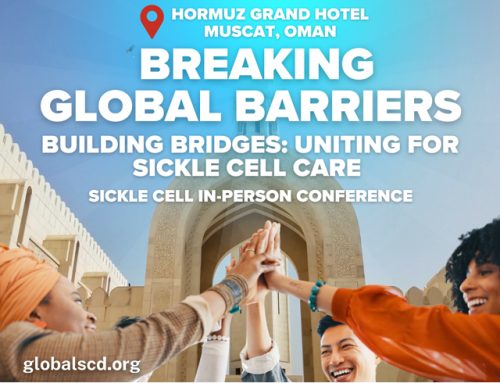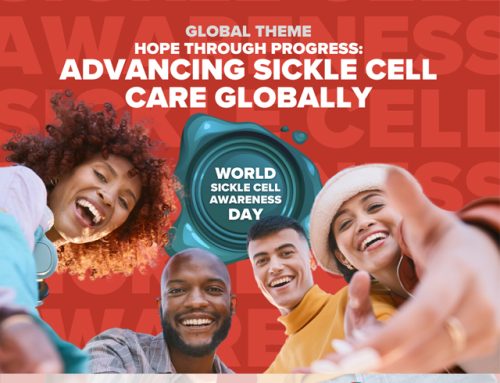Ontario, Canada— On June 19th, 2020 the Global Alliance of Sickle Cell Disease Organizations (GASCDO) will be witnessing the World Sickle Cell Day and continuing to provide a global voice and perspective for persons affected by Sickle Cell Disease / Trait.
Sickle cell disease (SCD) is one of the most common inherited blood disorders in the world.
GASCDO, its member organizations, collaborators and stakeholders understand that it is important that the needs of SCD patients and their families are put on the forefront of the global conversation. A key objective of GASCDO is to collaborate and catalyze impactful actions and initiatives to improve the standards of care for SCD patients particularly those living in low and medium-resource countries, as well as address the stigmas associated with the disease worldwide. GASCDO’s “Sickle Cell in My Language” campaign reflects the global diversity of this devastating disease, but more importantly, shares what it means to be strong living with SCD from individuals globally.
Through advocacy of the Sickle Cell Disease International Organization (SCDIO), the support of the Republics of Congo and Senegal, the commitment of the scientific world, the African Union (in 2005), the UNESCO (2005), the WHO (2006), and the United Nations (2008), SCD was recently recognized as a public health priority. The 19th of June has been designated the ‘World Sickle Cell Day’, a day for us all to pause and reflect on the burden of this disease, to recognize the struggle and the resilience of those affected, and to raise awareness of the disease worldwide. With these important collaboration frameworks, these recognitions should lead to more concrete actions and are to be supported by strengthened partnerships at national, regional, and international levels.
In healthy individuals, red blood cells are round and flexible and move freely through blood vessels to distribute oxygen to all parts of the body. Individuals with SCD have red blood cells which are “sickle” in shape, sticky, and nonflexible. These structurally modified red blood cells die prematurely leading to hemolytic anemia and block small blood vessels leading to vaso-occlusion, inflammation, hypercoagulability, and organ failure. Persons with SCD often experience severe and recurrent pain, acute chest syndrome, recurrent infections, strokes, and many other complications in addition to a poor quality of life.
To learn more about SCD, GASCDO, and its events during observation of World Sickle Cell Day, visit www.scdglobal.org. For media inquiries, email: contact@scdglobal.org
References
All Events: United Nations Educational, Scientific, and Cultural Organization.” All Events | United Nations Educational, Scientific and Cultural Organization, UNESCO, 21 June 2011, www.unesco.org/new/en/unesco/events/all-events/?tx_browser_pi1%5BshowUid%5D=4087.





